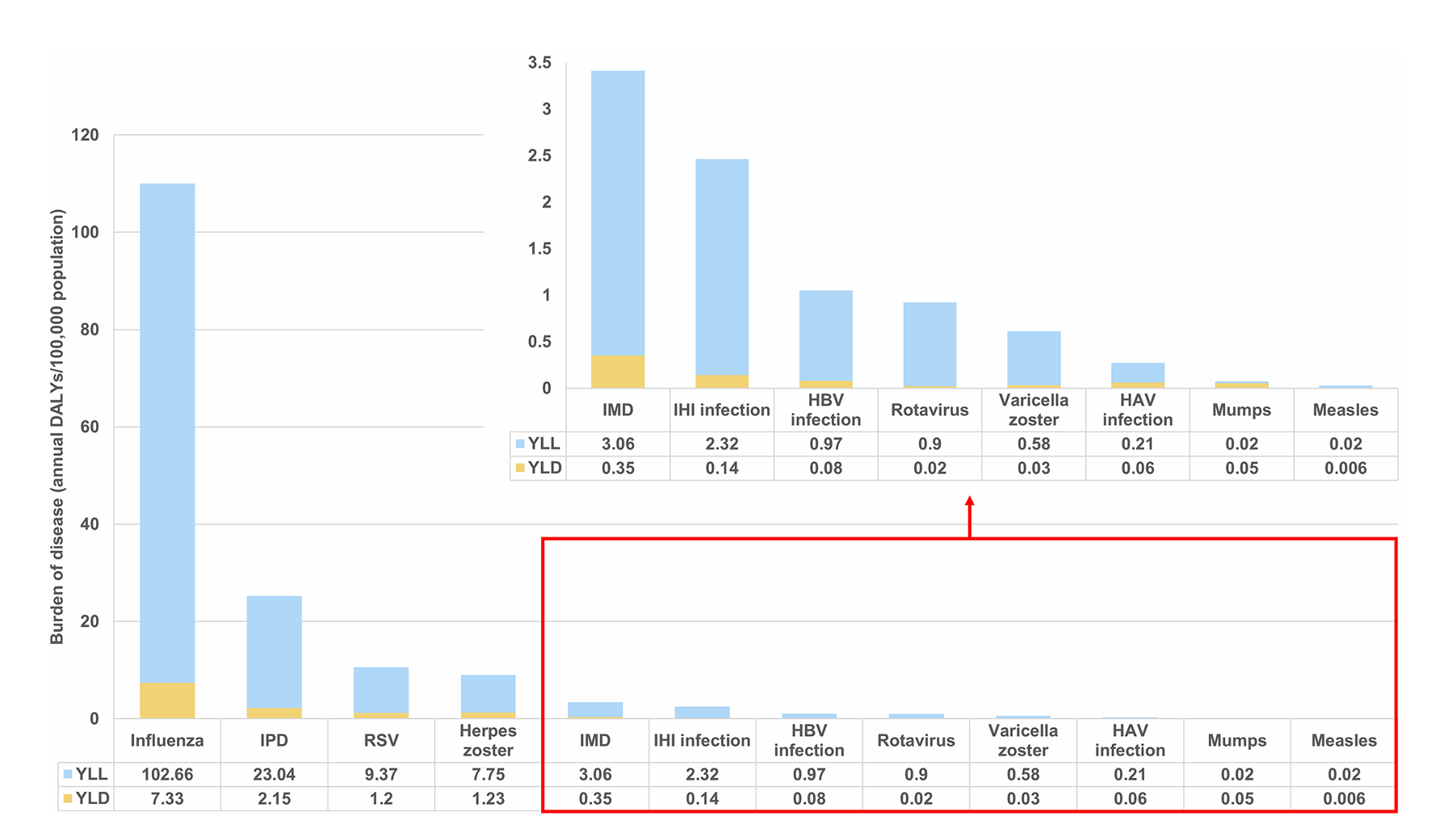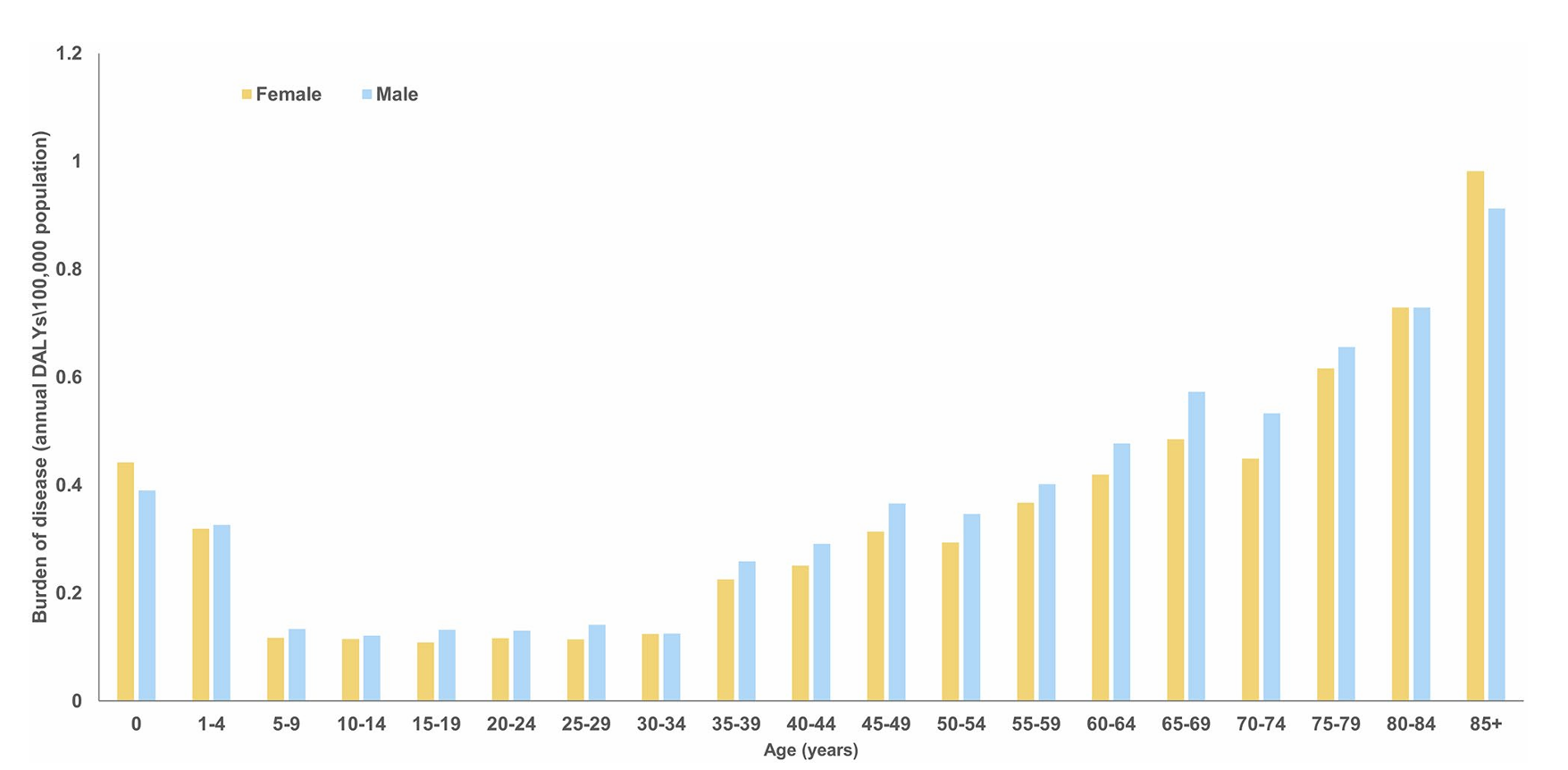
Introduction
Infectious diseases continue to challenge healthcare systems globally. However, effective immunisation strategies and national immunisation programmes (NIP) have proven to be efficient in controlling them. According to the Institute for Health Metrics and Evaluation (IHME), the global burden of infectious diseases decreased significantly from 1990 to 2019. This article will explore the impact of immunisation programmes in Spain, focusing on the burden of selected immunisation-preventable infectious diseases.
The Role of National Immunisation Programmes
National immunisation programmes play a crucial role in reducing the burden of infectious diseases. The European Centre for Disease Prevention and Control (ECDC) initiated the Burden of Communicable Diseases in Europe (BCoDE) project in 2006. This project developed a methodology to assess the impact of infectious diseases on population health in European Union/European Economic Area (EU/EEA) countries. The BCoDE methodology uses Disability-Adjusted Life Years (DALYs) to express the disease burden of an infectious disease. DALYs reflect both the impact on life expectancy and quality of life.
Current Burden of Disease in Spain
Despite immunisation efforts, the burden of certain immunisation-preventable infections remains high in Spain. Respiratory infections, such as influenza, invasive pneumococcal disease, and respiratory syncytial virus (RSV), exhibit the highest burden. Influenza alone accounts for 110.00 annual DALYs per 100,000 population. The burden of invasive pneumococcal disease and RSV follows with 25.20 and 10.57 annual DALYs per 100,000 population, respectively.
In Spanish older adults aged 60 or above, influenza imposes the greatest burden. This is potentially due to a low vaccination coverage rate (VCR), which reached only about 53.5% of those over 64 in the 2019–2020 vaccination campaign. Although this rate is high compared to other European countries, it falls short of the EU goal of 75%.

disability (YLD) and years of life lost (YLL) per 100,000 population for each infection in Spain
Impact of High Vaccination Coverage Rates
Infections with high VCRs, such as hepatitis B virus (HBV), Haemophilus influenzae, meningococcus, measles, mumps, and varicella, result in a substantially lower disease burden. This highlights the importance of effective public health measures. Maintaining high VCRs can reduce the incidence of some infections to a minimum, as seen with poliomyelitis, rubella, diphtheria, and tetanus in Spain.

all the infections evaluated.
Future Directions and Recommendations
The introduction of novel and more effective immunisation strategies could further reduce the burden of high-burden diseases. For instance, the Spanish Society of Geriatrics and Gerontology recommends universal vaccination for all adults ≥ 60 years of age with the high-dose (HD) influenza vaccine. The Spanish Ministry of Health also recommends vaccination for individuals ≥ 65 years, with some regions lowering the threshold to 60 years.
For RSV, the Spanish Association of Paediatrics recommends immunisation of neonates and infants under 6 months at the beginning of their first RSV season, as well as pregnant women. The only efficient preventive strategy in Spain at the time of this study was the single-dose monoclonal antibody nirsevimab.
Conclusion
The results of this analysis highlight a persisting high burden of respiratory infections despite the availability of effective vaccines and immunisation recommendations. Increasing VCRs and introducing novel immunisation strategies could further reduce this burden. Maintaining high VCRs for low-burden diseases is essential to prevent outbreaks and keep these diseases under control. These estimates provide a basis to guide prevention strategies, prioritise interventions, and make public health decisions in Spain.
